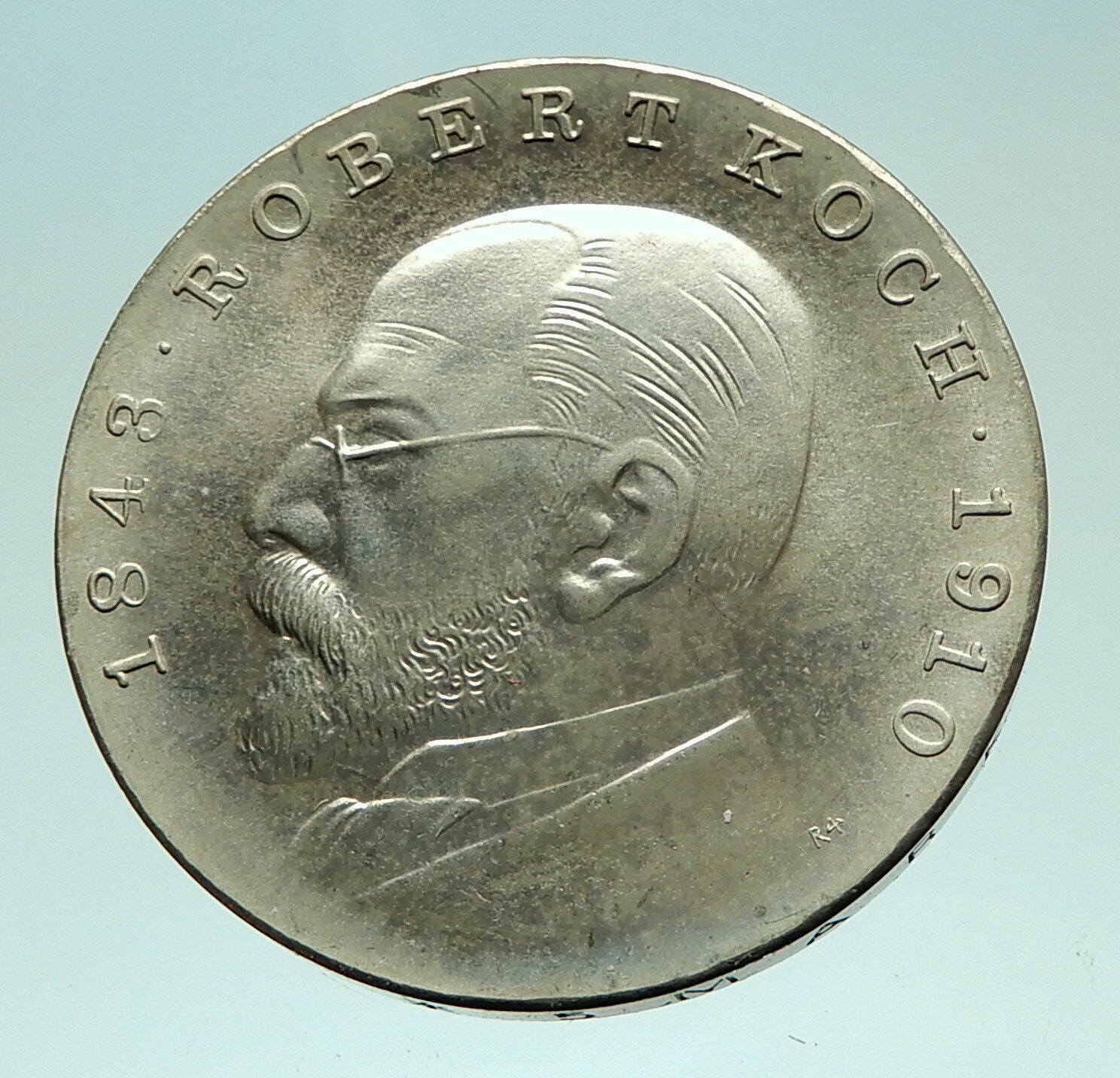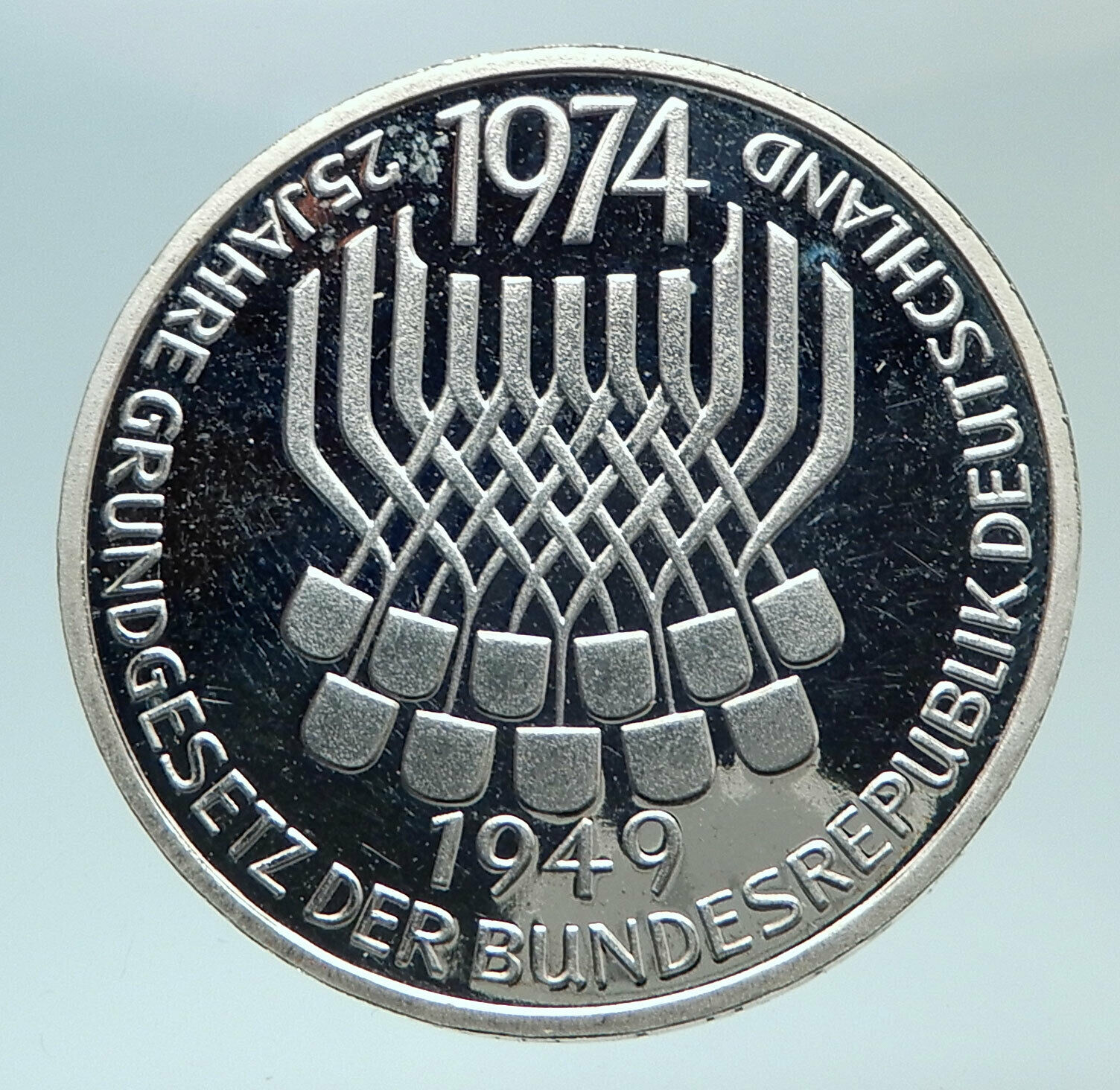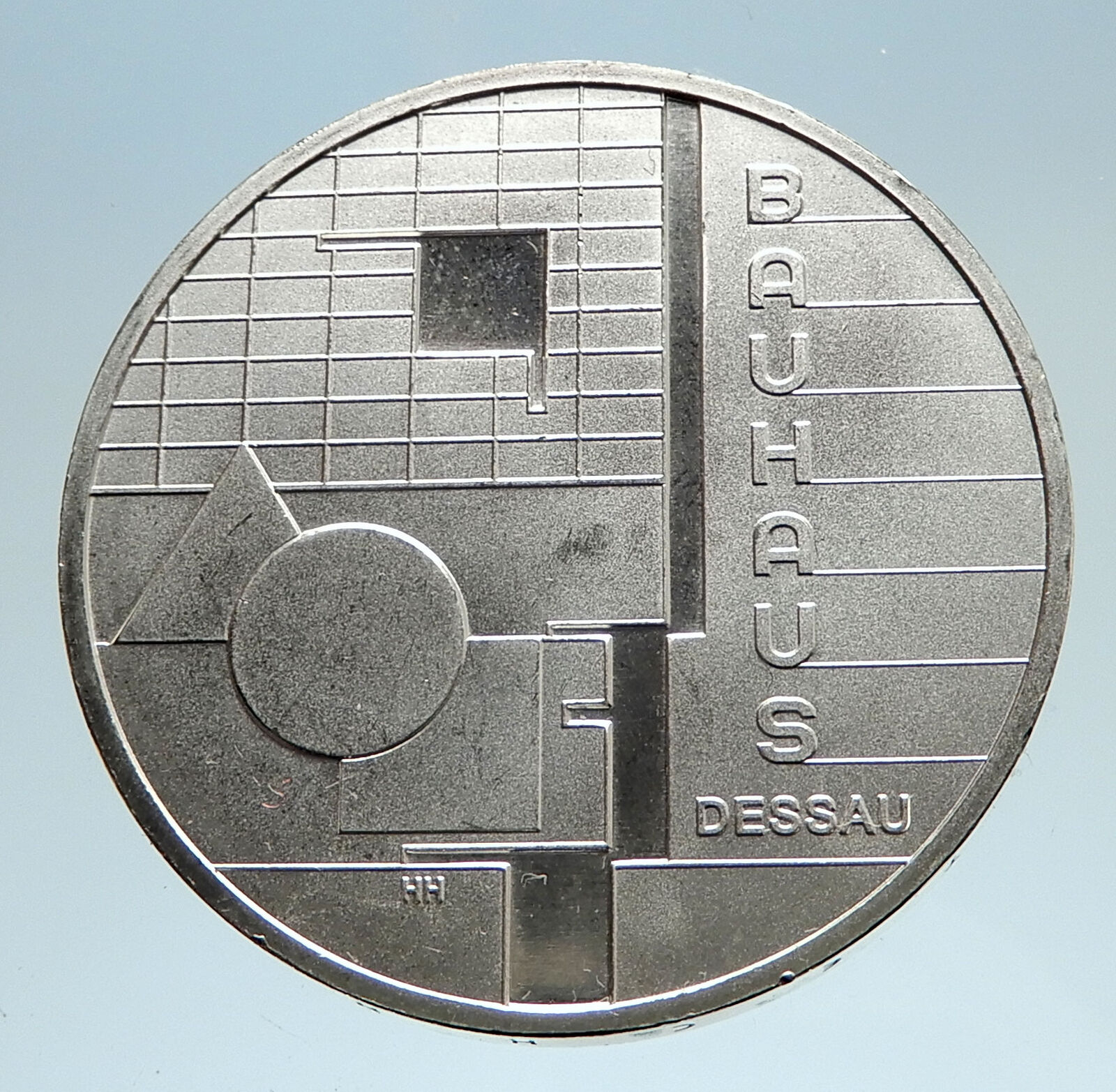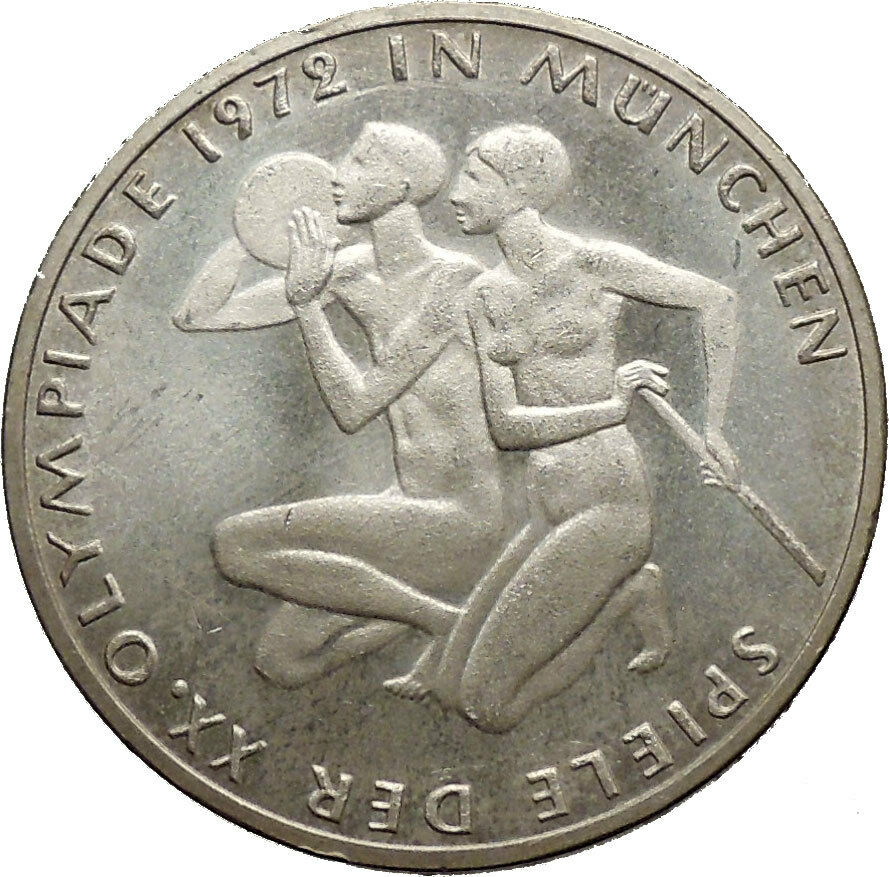|
Germany – Carl Spitzweg – 200th Anniversary of Birt
2008 D Proof Silver 10 Euro 32mm (18.13 grams) 0.925 Silver (0.4610 oz. ASW)
Reference: KM# 273
10 EURO BUNDESREPUBLIK DEUTSCHLAND 2008, Eagle.
CARL SPITZWEG 1808-1885, Subject reclining with books and umbrella above.
Edge Lettering: ACH, DIE VERGANGENHEIT IST SCHÖN
You are bidding on the exact item pictured, provided with a Certificate of Authenticity and Lifetime Guarantee of Authenticity.
 Carl Spitzweg (February 5, 1808 – September 23, 1885) was a German romanticist painter, especially of genre subjects. He is considered to be one of the most important artists of the Biedermeier era. Carl Spitzweg (February 5, 1808 – September 23, 1885) was a German romanticist painter, especially of genre subjects. He is considered to be one of the most important artists of the Biedermeier era.
Life and career
He was born in Unterpfaffenhofen, near Munich, Bavaria, the second of three sons of Franziska (née Schmutzer) and Simon Spitzweg. His father, a wealthy merchant, had Carl trained as a pharmacist. He attained his qualification from the University of Munich but, while recovering from an illness, he also took up painting. Spitzweg was self-taught as an artist, starting out by copying the works of Flemish masters. He contributed his first work to satiric magazines. Upon receiving an inheritance in 1833, he was able to dedicate himself to painting.
Later, Spitzweg visited European art centers in Prague, Venice, Paris, London, and Belgium studying the works of various artists and refining his technique and style. His later paintings and drawings are often humorous genre works. Many of his paintings depict sharply characterized eccentrics, for example The Bookworm (1850) and The Hypochondriac (c. 1865, in the Neue Pinakothek, Munich).
His paintings inspired the musical comedy Das kleine Hofkonzert by Edmund Nick.
Playing Piano, an etching by Spitzweg, was found as part of the 2012 Nazi loot discovery.
Spitzweg is buried in the Alter Südfriedhof in Munich.
Forgeries
In the late 1930s an art forgery case in Germany involved 54 paintings which had been passed off as Spitzweg originals. They had been painted by a Traunstein copyist named Toni who worked from reproductions and picture postcards. Toni signed the works with his own name as “after Spitzweg”, but fraudsters later removed his name and artificially aged the paintings in order to sell them as originals. At the Stuttgart Criminal Court Assizes the conspirators were jailed for up to ten years for the swindle.
Paintings
- A Woodland Meeting
- Ash Wednesday
- Disputing Monks
- Music-making Hermit before his Rocky Abode
- Schoolchildren in the Woodland
- Spanish Serenade
- The Bookworm
- The Cactus Friend
- The Intercepted Love Letter
- The Mineral-collector in the Grotto
- The Poor Poet
 Germany, officially the Federal Republic of Germany is a federal parliamentary republic in western-central Europe. It includes 16 constituent states and covers an area of 357,021 square kilometres (137,847 sq mi) with a largely temperate seasonal climate. Its capital and largest city is Berlin. With 81 million inhabitants, Germany is the most populous member state in the European Union. After the United States, it is the second most popular migration destination in the world. Germany, officially the Federal Republic of Germany is a federal parliamentary republic in western-central Europe. It includes 16 constituent states and covers an area of 357,021 square kilometres (137,847 sq mi) with a largely temperate seasonal climate. Its capital and largest city is Berlin. With 81 million inhabitants, Germany is the most populous member state in the European Union. After the United States, it is the second most popular migration destination in the world.
 Various Germanic tribes have occupied northern Germany since classical antiquity. A region named Germania was documented before 100 CE. During the Migration Period the Germanic tribes expanded southward. Beginning in the 10th century, German territories formed a central part of the Holy Roman Empire. During the 16th century, northern German regions became the centre of the Protestant Reformation. Various Germanic tribes have occupied northern Germany since classical antiquity. A region named Germania was documented before 100 CE. During the Migration Period the Germanic tribes expanded southward. Beginning in the 10th century, German territories formed a central part of the Holy Roman Empire. During the 16th century, northern German regions became the centre of the Protestant Reformation.
 The rise of Pan-Germanism inside the German Confederation resulted in the unification of most of the German states in 1871 into the Prussian-dominated German Empire. After World War I and the German Revolution of 1918-1919, the Empire was replaced by the parliamentary Weimar Republic. The establishment of the Third Reich in 1933 led to World War II and the Holocaust. After 1945, Germany split into two states, East Germany and West Germany. In 1990, the country was reunified. The rise of Pan-Germanism inside the German Confederation resulted in the unification of most of the German states in 1871 into the Prussian-dominated German Empire. After World War I and the German Revolution of 1918-1919, the Empire was replaced by the parliamentary Weimar Republic. The establishment of the Third Reich in 1933 led to World War II and the Holocaust. After 1945, Germany split into two states, East Germany and West Germany. In 1990, the country was reunified.
In the 21st century, Germany is a great power and has the world’s fourth-largest economy by nominal GDP, as well as the fifth-largest by PPP. As a global leader in several industrial and technological sectors, it is both the world’s third-largest exporter and importer of goods. Germany is a developed country with a very high standard of living sustained by a skilled and productive society. It upholds a social security and universal health care system, environmental protection and a tuition free university education.
Germany was a founding member of the European Union in 1993. It is part of the Schengen Area, and became a co-founder of the Eurozone in 1999. Germany is a member of the United Nations, NATO, the G8, the G20, and the OECD. The national military expenditure is the 9th highest in the world. Known for its rich cultural history, Germany has been continuously the home of influential artists, philosophers, musicians, sportsmen, entrepreneurs, scientists and inventors.
|





 Carl Spitzweg (February 5, 1808 – September 23, 1885) was a German romanticist painter, especially of genre subjects. He is considered to be one of the most important artists of the Biedermeier era.
Carl Spitzweg (February 5, 1808 – September 23, 1885) was a German romanticist painter, especially of genre subjects. He is considered to be one of the most important artists of the Biedermeier era.  Germany, officially the Federal Republic of Germany is a federal parliamentary republic in western-central Europe. It includes 16 constituent states and covers an area of 357,021 square kilometres (137,847 sq mi) with a largely temperate seasonal climate. Its capital and largest city is Berlin. With 81 million inhabitants, Germany is the most populous member state in the European Union. After the United States, it is the second most popular migration destination in the world.
Germany, officially the Federal Republic of Germany is a federal parliamentary republic in western-central Europe. It includes 16 constituent states and covers an area of 357,021 square kilometres (137,847 sq mi) with a largely temperate seasonal climate. Its capital and largest city is Berlin. With 81 million inhabitants, Germany is the most populous member state in the European Union. After the United States, it is the second most popular migration destination in the world. Various Germanic tribes have occupied northern Germany since classical antiquity. A region named Germania was documented before 100 CE. During the Migration Period the Germanic tribes expanded southward. Beginning in the 10th century, German territories formed a central part of the Holy Roman Empire. During the 16th century, northern German regions became the centre of the Protestant Reformation.
Various Germanic tribes have occupied northern Germany since classical antiquity. A region named Germania was documented before 100 CE. During the Migration Period the Germanic tribes expanded southward. Beginning in the 10th century, German territories formed a central part of the Holy Roman Empire. During the 16th century, northern German regions became the centre of the Protestant Reformation. The rise of Pan-Germanism inside the German Confederation resulted in the unification of most of the German states in 1871 into the Prussian-dominated German Empire. After World War I and the German Revolution of 1918-1919, the Empire was replaced by the parliamentary Weimar Republic. The establishment of the Third Reich in 1933 led to World War II and the Holocaust. After 1945, Germany split into two states, East Germany and West Germany. In 1990, the country was reunified.
The rise of Pan-Germanism inside the German Confederation resulted in the unification of most of the German states in 1871 into the Prussian-dominated German Empire. After World War I and the German Revolution of 1918-1919, the Empire was replaced by the parliamentary Weimar Republic. The establishment of the Third Reich in 1933 led to World War II and the Holocaust. After 1945, Germany split into two states, East Germany and West Germany. In 1990, the country was reunified.




